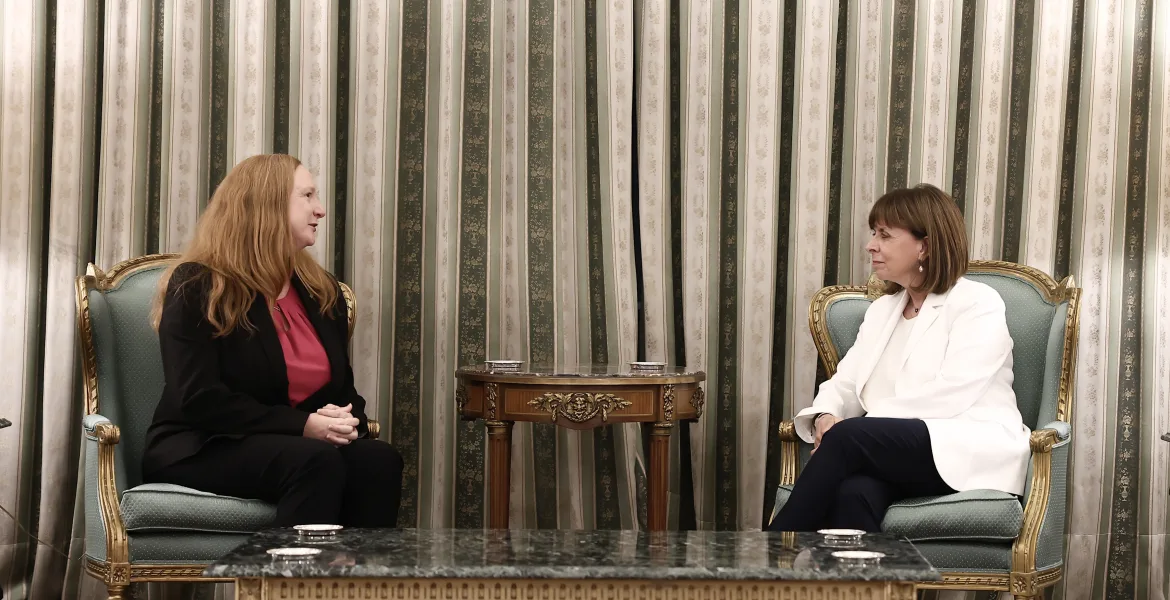On 16 June this year, Australian Foreign Affairs Minister Penny Wong announced the appointment of Mrs Alison Duncan as Australia's next Ambassador to Greece.
Since her appointment Ambassador Duncan has been active in promoting cultural initiatives and further strengthening the strong ties between Greece and Australia.
Australia and Greece have an enduring relationship grounded in strong people-to-people links, common values and a shared history forged during WWI and WWII. Almost 500,000 Australians claim Greek ancestry and have contributed greatly to Australia's multicultural landscape.
Australia's trade and investment relationship with Greece is growing. In 2021-22, two-way goods and services trade with Greece was $2.2 billion with Australian companies present in Greece supporting its energy and infrastructure sector.
Australia cooperates with Greece on a number of shared interests, including countering terrorism and illegal people movements given both countries have a like-minded approach to a range of international security issues, including upholding the rules-based international order, disarmament and non-proliferation.
Greek City Times had the opportunity to put forward a few questions to the Ambassador about her role in her new diplomatic posting.
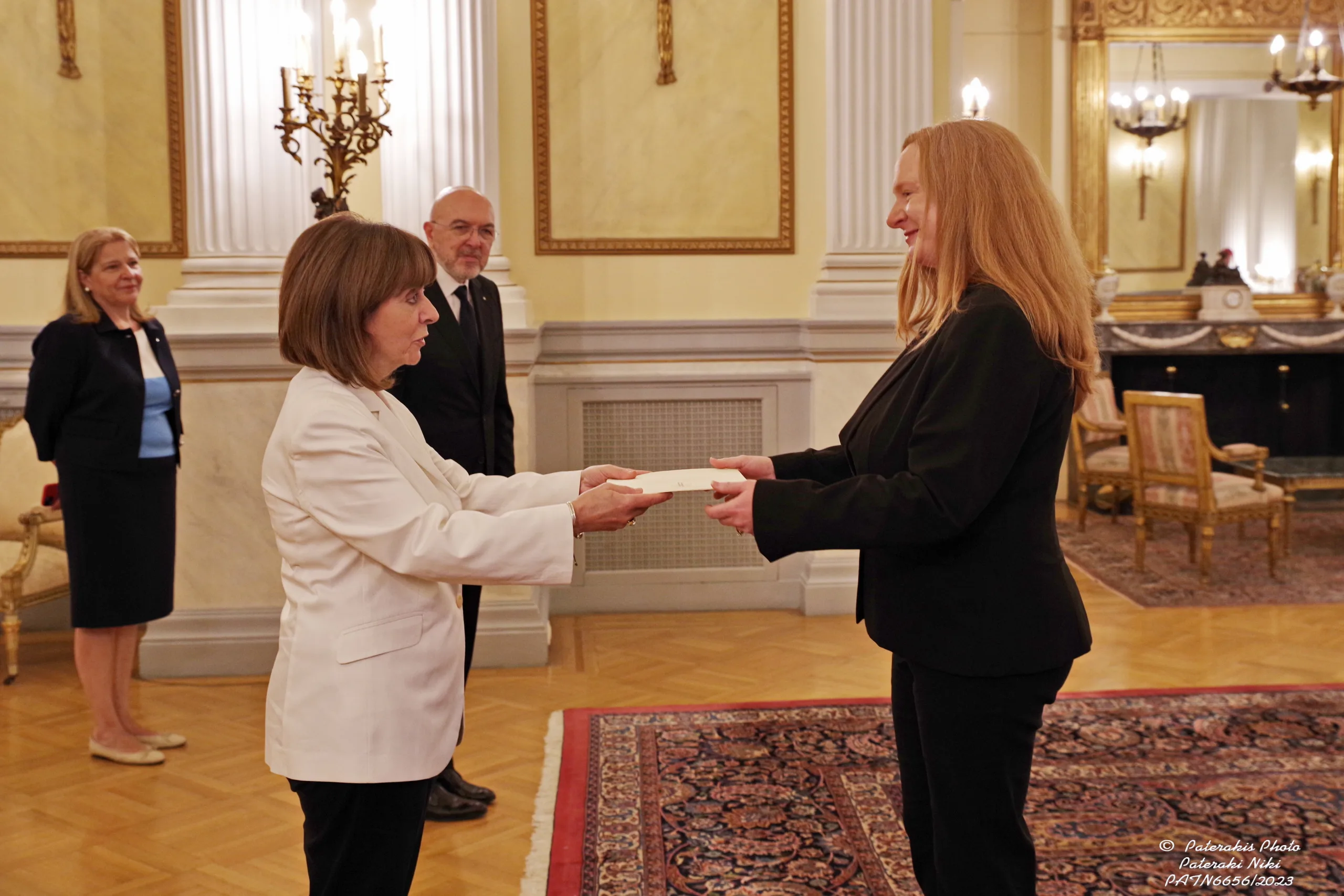
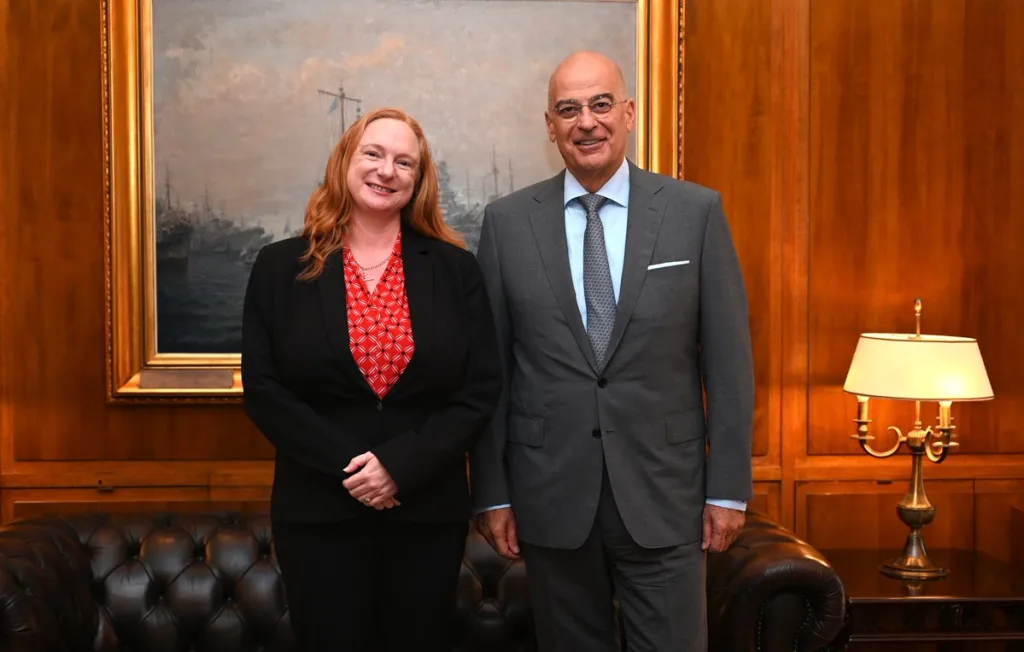
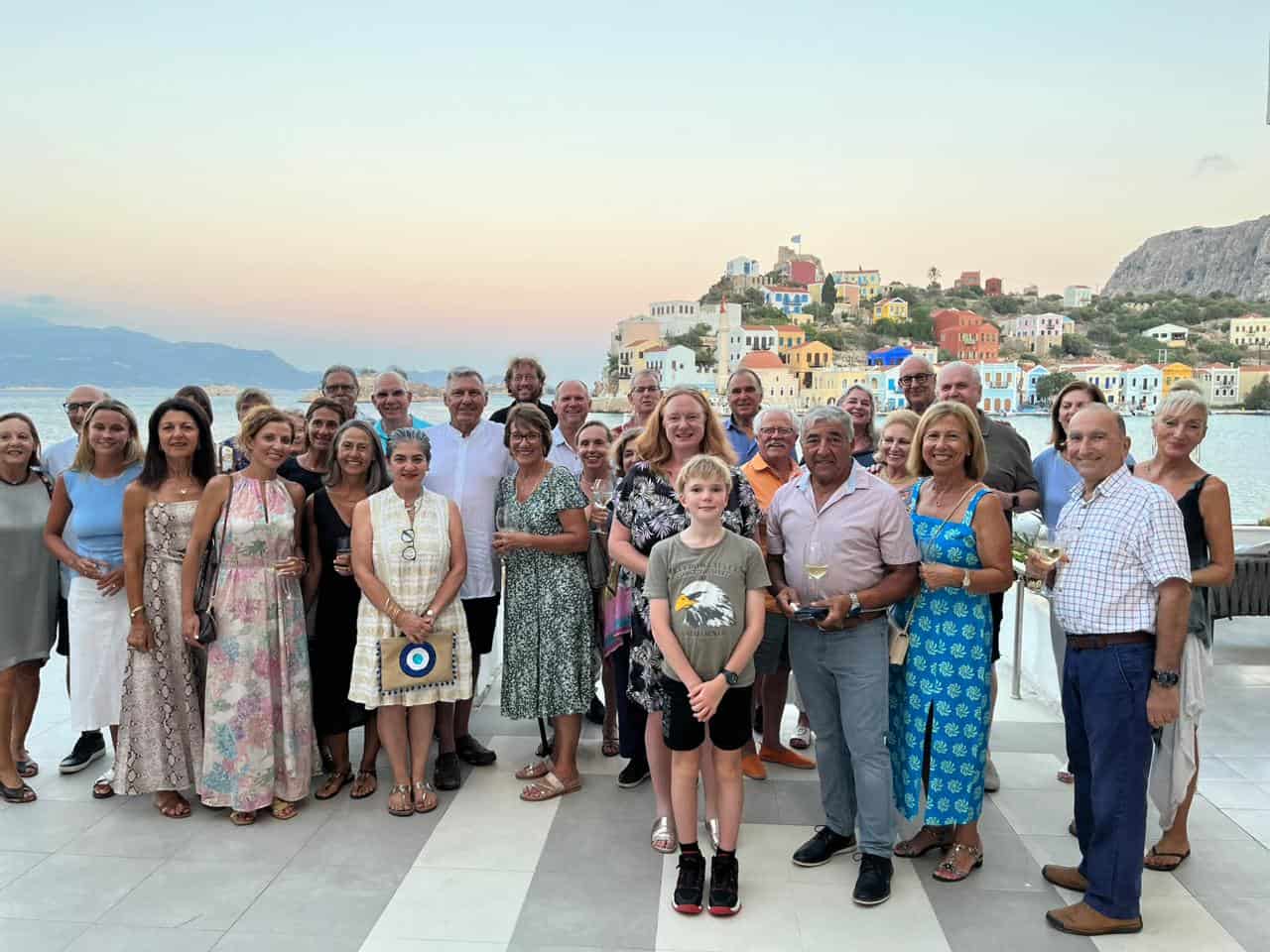
Diplomats and migrants seem to share a common thread. To better understand and partake of the country they arrive in, they need to familiarise themselves with the language and culture. From your previous overseas posts, what skills did you acquire that you bring with you to your new appointment?
I’ve served previously in Indonesia, Solomon Islands and New Zealand. Obviously those places are very different to Greece, but the skills of a diplomat are similar regardless of where you serve. An ability to make connections; to know when to listen and when to advocate; to communicate clearly and effectively; to understand the context of the place you’re serving in and the relevance of any given issue to Australia and Australian interests. These are some of the core skills of a diplomat that are the same no matter where you serve.
Had you been to Greece prior to your appointment as Ambassador?
No, but I’d wanted to for a very long time!
Did you experience a culture shock coming to Greece?
Not really. I’d had a lot of exposure to Greek people in Australia, so the culture felt quite familiar to me when I arrived.
Apart from the similarities, are there elements in Greek culture you wished existed within Australian society?
I love the warmth of the Greek people towards strangers – the φιλοξενία – which is really evident to me here. I think Australians are also very welcoming, but it’s perhaps not quite as culturally ingrained in us as it is in Greece.
Are there elements in Australian culture you wished existed within Greek society?
In Australia, people don’t think I’m strange when I say I don’t drink coffee!
What do you love about Greece?
So many things! I love living in Athens – it’s such a fun and fascinating place. I love that there’s so much to see and do within a short distance of Athens too. I love being able to combine a visit to the beach with an amazing archaeological site or museum. I’ve already enjoyed some wonderful hiking and scuba diving and look forward to more. I love the people, the food, the theatre. And, of course, I love my job! It’s such an honour and a pleasure to represent Australia in Greece.
Things that frustrate you?
The difficulty of finding somewhere to park your car in Athens!
Are you learning the language? Easy? Hard?
I am. I’m finding it slow because I have so little time to devote to it. Between a very busy job, spending time with my family, and discovering the country, there’s not a lot of time left over for study.
How is your family adjusting to their new Greek life?
They love it. My husband has even mastered the art of driving in Athens! My son is really interested in Greek mythology so he’s loving it too.
In 1981 Australia and Greece signed a cultural treaty which among other things would encourage cultural exchange programmes, and the teaching, language, history and culture of the other country in their educational institutions and so forth. What initiatives is Australia undertaking in Greece in its promotion of Australian culture?
Many things. We support Australian artists who want to showcase their work in Greece. Our ability to provide financial support is limited, but we can also support in other ways through our attendance at events and promoting their work on our social media channels. Some emblematic examples that spring to mind are the iconic mural created by celebrated Australian artist Guido van Helten in Exarcheia paying tribute to the rich history of the area, or the upcoming concert by legendary avant-garde trio The Necks at the Athens Conservatory.
We also regularly showcase Australian films at festivals in Athens and Thessaloniki, and we even reach as far as Kastellorizo, which of course has a very special connection with Australia given it’s the ancestral homeland of close to 80,000 Kazzies. In 2024, we’re also planning to support theatrical performances, opening a new chapter in the promotion of Australian arts in Greece.
Whenever we can, we tap into the many cultural initiatives of the Greek Australian community, for instance by showcasing and supporting the work of Greek Australians promoting cultural cooperation.
And finally, a big part of the cultural promotion we do focuses on our strong commitment to democratic values. So, in line with advancements achieved at home, we undertake advocacy on human rights issues, including gender equality and LGBTQIA+ rights, by partnering with local NGOs.
Greece is largely an ethnically homogenous country, yet multilingualism is highly valued and pursued. According to 2016 data from the European Commission one in two Greeks can communicate in a foreign language; the highest in Europe. More than 400 languages are spoken in Australia and multi-culturalism is the country’s motto, yet only 22% of Australians speak a second language. Is there something Australia can learn from the Greek experience?
I would love to see more Australians learning a second language. It’s a great way to open your eyes to the world, it’s an advantage in business and any kind of international career, and it also demonstrates respect to others when you can communicate with them in their own language.
I speak Indonesian and French, as well smatterings of other languages including a tiny bit of Ngunnawal, which I think makes a real difference when engaging people from those language groups.
It’s great to see the passion with which Greek community groups in Australia are working to maintain the Greek language within the diaspora and beyond. They should be really proud that Greek is the 6th most spoken language in Australia.
In 2008 the Social Security Agreement between Australia and Greece was signed; a significant treaty covering Australian and Greek Age Pensions. In 2021, Australian driver licences are recognised in Greece; an initiative that benefits thousands of Australians travelling to Greece. Are there any other initiatives in the pipeline that the two countries are working on?
An initiative that’s already in place is the Work and Holiday Visa which allows Australians and Greeks aged between 18 and 31 to travel and work in each other’s countries for up to 12 months. There are certain conditions that need to be met and all the information is on the Department of Home Affairs website.
Another initiative that will be of interest to many is that Australia and Greece have recommenced our work towards a Double Taxation Agreement. Double tax agreements are useful to people who have assets or income in two countries because they reduce or eliminate double taxation caused by overlapping tax jurisdictions.
What challenges do you think diplomats face today?
Some of the challenges have always been there – moving your family every couple of years to a new country is a great privilege but it can also be disruptive, particularly for your spouse’s career and your kids’ schooling.
And there are some newer challenges too.
Apart from the interruption to international travel caused by Covid-19, more Australians than ever are travelling overseas. An important part of the role of a diplomat is to assist Australians when they find themselves in difficulty overseas - and more travellers means more consular clients. But we also encourage people to help themselves by reading the advice on our Smartraveller website before they travel and taking out travel insurance.
Another challenge is making sure the Australian government gets accurate and relevant advice on international developments quickly. Global events are fast-moving and news travels around the globe at lightning speed. Sometimes that ‘news’ is fake news. One of the challenges for diplomats is to add value quickly and in a way that cuts through the noise so that the government can act in a timely manner to advance and protect Australia’s interests.
Which other countries would you most like to work in and why?
Right now, I’m just delighted to be serving as Australia’s Ambassador to Greece, Romania and Bulgaria!
The best part of your job as Australia’s Ambassador to Greece?
It’s such an honour to represent my country in a place that has such deep and important ties to Australia. The best bits are celebrating and honouring those ties; bringing people, institutions, businesses and NGOs together for their mutual benefit; and, of course, all the wonderful people and places I get to know along the way.
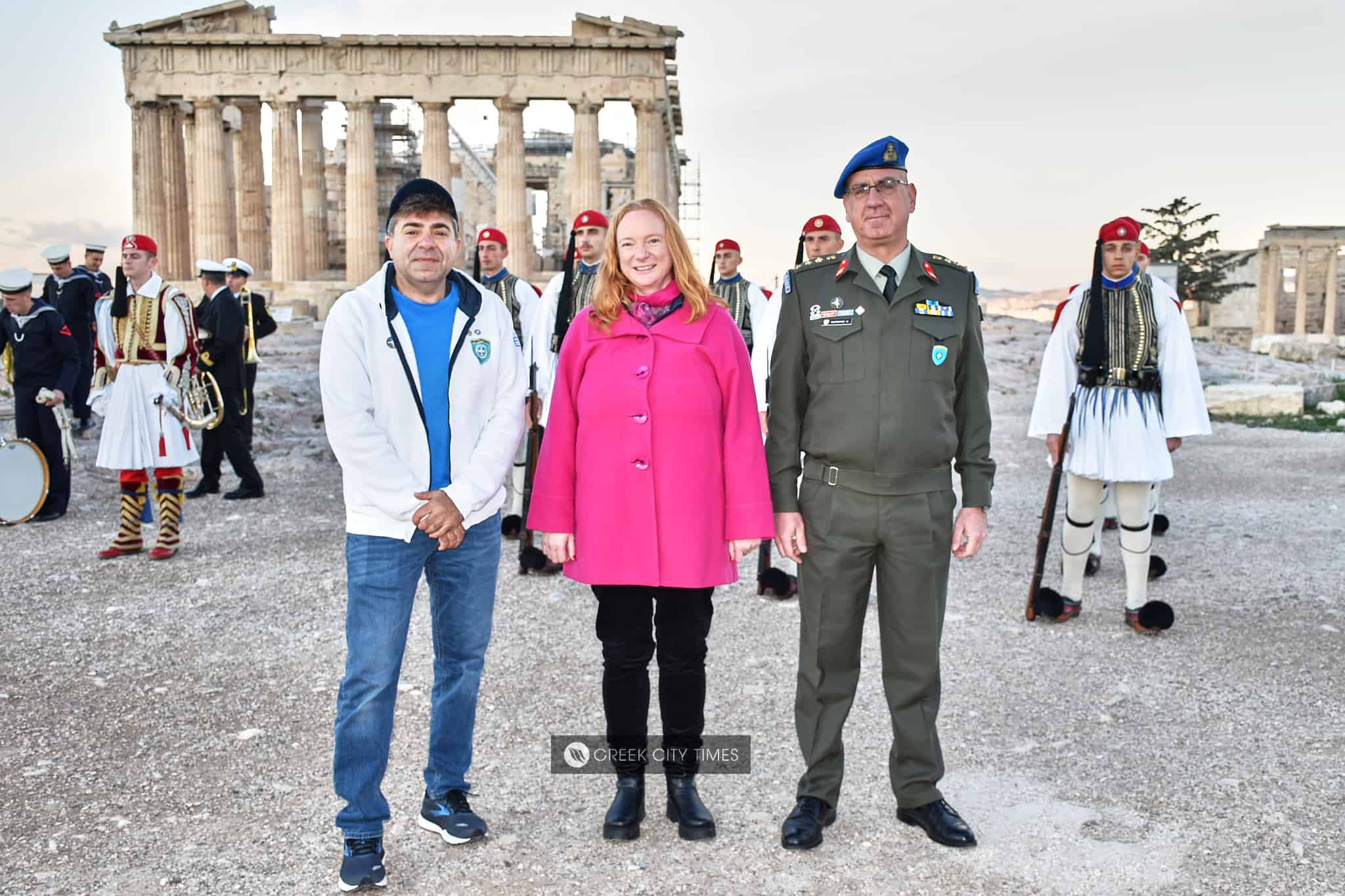
Ms Duncan is also accredited to Bulgaria and Romania. She is a senior career officer with the Australian Department of Foreign Affairs and Trade and was most recently Assistant Secretary of the Consular Communications and Policy Branch.
Prior to her posting to Jakarta, Indonesia, Mrs Duncan was Counsellor then Deputy High Commissioner at the Australian High Commission in Wellington, New Zealand (2015-18). She has also served as Deputy High Commissioner to the Solomon Islands (2008-11) and as Third Secretary in Jakarta (2003-06). In Canberra, Mrs Duncan established a Pacific Strategy Unit to bring together the foreign policy and development aspects of Australia’s engagement with the Pacific following the integration of the Department of Foreign Affairs and Trade with the Australian Agency for International Development in 2013. She has also worked in DFAT’s Counter-Terrorism Branch and as Director of Solomon Islands Section.

